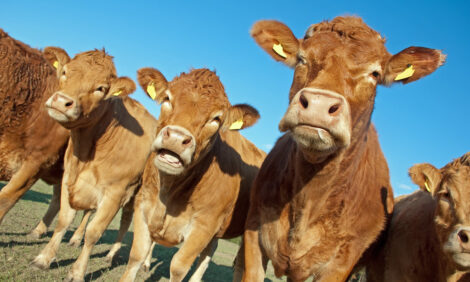



New FMD strain discovered in Turkey - GAIN report
The Ministry of Agriculture & Forestry has responded accordinglyIn March, the Turkish Ministry of Agriculture & Forestry detected for the first time an SAT-2 strain of foot and mouth disease (FMD) in cattle, according to a recent USDA GAIN report. T
he cases are located in the eastern half of Turkey, though media reports suggest there may be additional cases in other parts of the country.
In response to the detection, the Ministry of Agriculture & Forestry has instituted various measures to halt the spread of the virus, including quarantine, traceability, vaccination, movement controls, and disinfection procedures. Under the ministry's orders, animal markets have been closed and the movement of FMD-susceptible animals has been restricted across the country. Exemption from these movement controls only apply to animals sent directly to slaughterhouses for processing, or those animals designated for official export or import channels.
The Turkish livestock industry is worried that the virus will impact meat and milk yields, thereby driving retail prices for these products even higher. The detection of this new FMD strain comes at a time when the country’s livestock industry is reeling from the effects of the devastating earthquakes as well as tough economic conditions that forced many farmers to prematurely liquidate their livestock inventories.
The Ministry announced in early March that it had developed a vaccine against the SAT-2 serotype and would immediately begin vaccinating susceptible animals. According to livestock producers, it is critical to complete this vaccination campaign and resume the movement of animals ahead of the Islamic holiday, the Feast of Sacrifice (Eid al-Adha). Otherwise, there is concern that the virus could spread further, and cause the livestock industry to suffer even greater financial losses.



